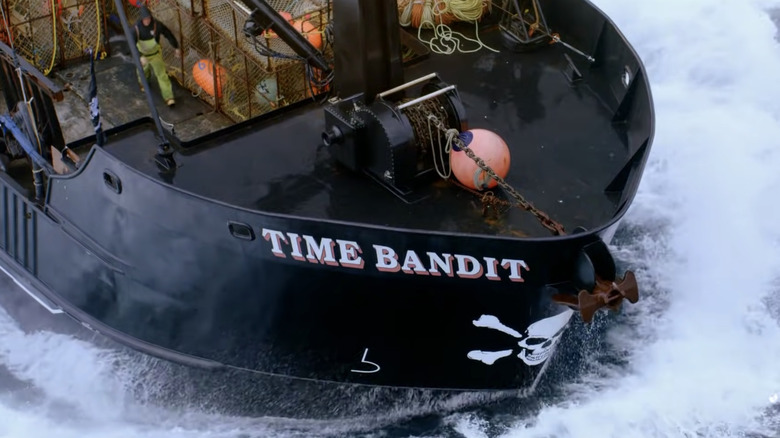The Record-Breaking Haul On Deadliest Catch That Made The Crew Thousands Of Dollars
Although the name "Deadliest Catch" is a reference to the extreme risks of Alaskan crab fishing in the Bering Sea (and indeed, the show has infamously documented the passing of several cast members over the years), the true driving force behind the show is the crew's attempt to pull in as much crab as possible for the highest profit (via Discovery).
In that, the series is much more akin to "Gold Rush," as the cast of "Deadliest Catch" works an even tougher job than you might think just for the chance to pull in a haul of Alaskan king crab. Indeed, the show makes it abundantly clear that everyone's livelihood depends upon their success each season. The desperation to meet their quotas each year leads to tough decisions. Considering how inherently dangerous and nerve-wracking this profession truly is, it's no wonder why seeing the team bring in a massive haul is so incredibly rewarding — especially when they pull in a record-breaking pot like the one Johnathan Hillstrand caught in 2017.
Johnathan Hillstrand's insane haul broke records but was a dangerous trip
During Season 13 of "Deadliest Catch," Captain Johnathan Hillstrand (who was retiring) and the crew of the F/V Time Bandit took their ship over 600 miles away from their berth: over to the coast of Russia. This extreme gamble paid off almost immediately, as the first pot they pulled contained 440 opilio crab, worth about $13,000 at the time (via Yahoo News). Each successive pot seemed to grow bigger and bigger, to the point where one contained around 670 total crabs.
In the end, Hillstrand and his crew set a record for the biggest haul of crab the show had ever seen. Unfortunately, the total number was not confirmed, possibly because the crew had to flee the location due to an impending storm. This specific haul is a perfect example of how "Deadliest Catch" keeps the audiences on the edge of their seat — as Hillstrand's risky maneuver earned the team an impressive payday while narrowly avoiding severe danger.

